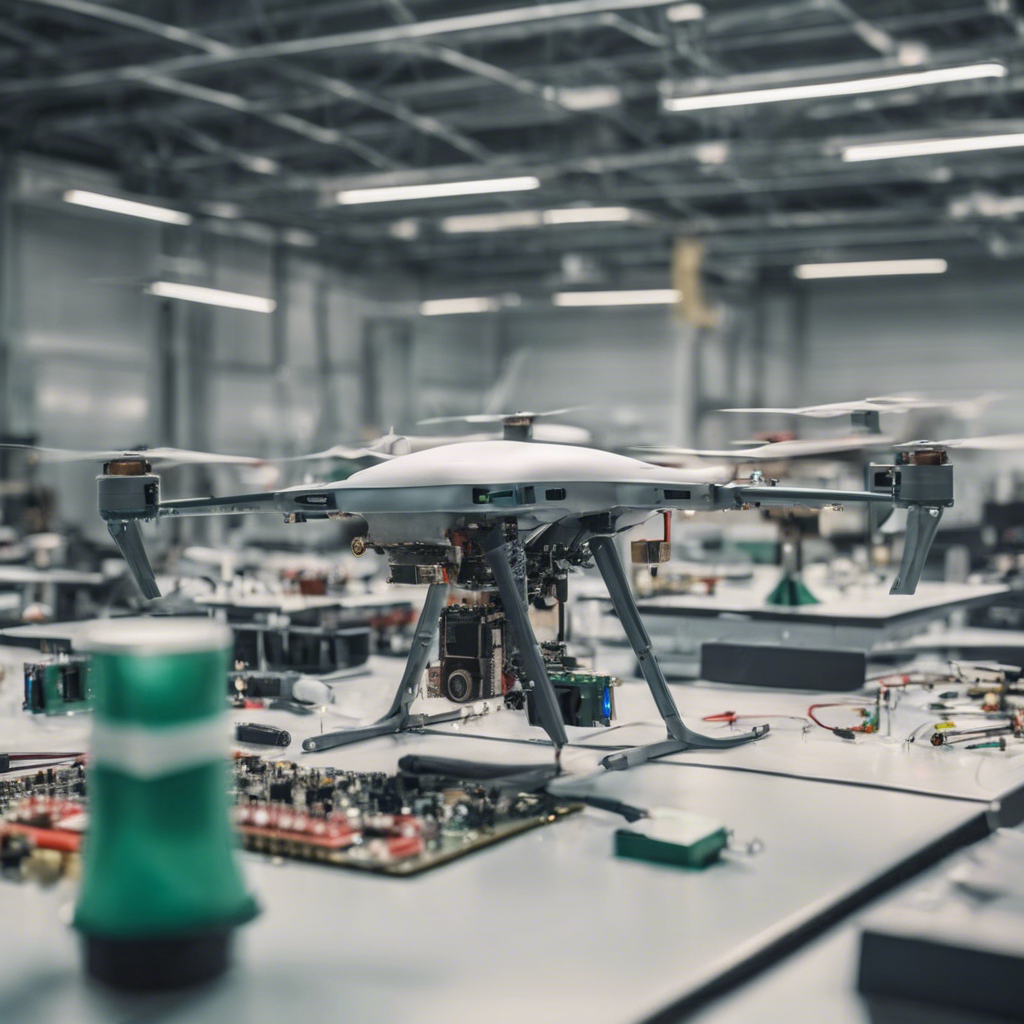Progress Made in Curbing Illicit Transfers of Electronic Components to Russian-Iranian Drone Plant, but More Action Needed

U.S. and Ukrainian researchers call for further sanctions and industry cooperation to prevent Western electronic components from reaching the suspected Russian drone facility
Efforts to curb the transfer of Western electronic components to a Russian facility suspected of manufacturing Iranian-designed attack drones have seen some progress, according to U.S. and Ukrainian researchers. The White House recently released an intelligence finding stating that Russia was receiving materials from Iran to build an attack drone manufacturing plant in its Alabuga special economic zone. While the U.S. Commerce Department has taken steps to restrict exports to certain Russian companies associated with the facility, experts argue that more needs to be done to prevent the transfer of components and discourage foreign businesses from dealing with the plant’s owner, JSC Alabuga.
Commerce Department’s Sanctions Seen as a Positive Step
The U.S. Commerce Department’s decision to place 11 Russian companies on its list of entities requiring a license for items subject to export controls has been commended by experts. These companies were associated with the suspected Alabuga drone facility. The move, which was made in December 2021, expanded the items subject to U.S. export controls to include semiconductors and other drone components used by Russian and Iranian entities on the Entity List. David Albright, president of the Institute for Science and International Security, views this sanction as a sign of progress.
Calls for Further Sanctions on JSC Alabuga
While progress has been made, experts argue that further sanctions are necessary to deter foreign businesses from engaging with JSC Alabuga and associated companies. Vladyslav Vlasiuk, a Ukrainian sanctions researcher, and David Albright both advocate for the U.S. Treasury and State departments to sanction JSC Alabuga, emphasizing that such designations are long overdue. Ukraine also supports the sanctioning of JSC Alabuga and other companies identified as being involved in Russia’s drone industry.
U.S. Government’s Response and European Involvement
When asked about sanctioning JSC Alabuga, the U.S. Commerce Department declined to comment on potential deliberations related to Entity List actions. However, the department emphasized that responding to Russia’s war against Ukraine remains a high priority. Several European governments have shown interest in using the research conducted by the Institute for Science and International Security to disrupt Alabuga’s access to electronic components made by companies headquartered in their territories. Switzerland and the Netherlands, in particular, have been actively working with Ukraine on this issue.
Electronics Industry’s Role in Preventing Component Transfers
Experts argue that Western electronics manufacturers must take greater responsibility to prevent their components from ending up in Alabuga’s drones. They highlight the need for electronics manufacturers to work closely with distributors on policies promoting due diligence and knowing the end user. Manufacturers should refuse to make sales of critical items unless they have a clear understanding of the end user. Ukraine expresses dissatisfaction with finding Western parts in Russian attack drones and urges manufacturers to tighten compliance and know-your-customer procedures.
Conclusion:
While progress has been made in curbing illicit transfers of Western electronic components to the suspected Russian drone facility in Alabuga, more action is needed. The U.S. Commerce Department’s sanctions on certain Russian companies associated with the facility have been viewed as a positive step, but experts argue that JSC Alabuga and associated companies should also face sanctions. Additionally, Western electronics manufacturers must play a more active role in preventing their components from reaching the facility. The involvement of European governments in disrupting Alabuga’s access to electronic components further highlights the international effort to address this issue. Ultimately, preventing the transfer of Western electronic components to the Russian-Iranian drone plant is crucial in curbing the development of advanced attack drones.

